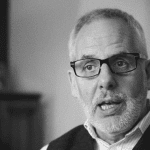The Bible sometimes seems contradictory, or at least appears to offer conflicting advice. For example, the wise man in Proverbs advises us not to answer a fool according to his folly (Prov 26:4). In the next verse, however, he offers the opposite wisdom: namely, to answer a fool according to his folly.
In a similar way the Lord Jesus said that if someone is not with Him, then they are against him (Matt 12:30). But conversely, if someone is not against Him then they are for Him (Mark 9:40).
Of course, the word of God doesn’t contradict itself. Rather, statements like these are a call for wisdom, and show us how to relate appropriately in a complex world.
I am in the midst of exploring how to enhance the competency of clergy, and the same issue of wisdom arises. And so, in this article I want to go on a short journey exploring how wisdom must be applied to developing to one aspect of ministry leadership.
The Best of Secular Thinking on Leadership Development
Just as Proverbs proclaims divine wisdom that is also shared with Egyptian wisdom (Prov 22-24), we too can learn from secular minds. Of course, this may be dangerous, as it can be a slippery slide to error, but to ignore all insights denies God’s common grace. So we need to engage thoughtfully with secular thinking.
The best leadership literature recognises that leadership consists of many roles, which often compete with each other.
The best leadership literature recognises that leadership consists of many roles, and that these roles often compete with each other. For example, the drive to complete a task can compete with our desire to be relationship focused. The competing roles of ministry can cause ministry leaders grief either by only paying attention to roles we do well or love, and neglecting the other roles; or not knowing which roles to focus on at any particular time.
Many of us will be familiar with the purpose model of church, or natural church development. Both of these models recognise that there are a number of roles that must be performed, and to not perform one at a required level will cause the whole ministry to be diminished. Christian books also abound on how to integrate the roles of ministry in a wise way, as a common concern for clergy is they feel they must do all roles well at all times.
The secular model of leadership development I am most drawn to identifies six roles, all identified to improve performance. These are the entrepreneurial role, the discipler role, the role of executing tasks, the role of engaging with other groups and the wisdom role of knowing which role or roles to focus on at any time. Interestingly, after conducting research on clergy, the areas of greatest development need are the roles of executing tasks, and engaging and working with other groups.
After conducting research on clergy, the areas of greatest development need are the roles of executing tasks, and engaging with other groups.
What Is Absent From The Secular Thinking On Leadership
The model I have just described focuses on performance, but lacks any concept of purpose or why we do what we do.
In focus group work with clergy, three additional (and I would add, essential) roles were identified. I have called these the ethicist role, the defender role and the missioner role.
The ethicist role is obvious. We serve a Lord who calls us to imitate him in both our goals and our methods. The ethicist role is crucial for growing in wisdom in deciding what to do and how to do it.
The defender role springs from God having spoken. His Word rules our lives and we are called to stand firm and defend that revelation. The elder must both instruct in sound doctrine and refute error (Tit 1:9). The armour of God in Ephesians 6 is largely defensive. The Christian leader has the responsibility to guard the good deposit and to contend for the faith once for all delivered (Jude 3) in the personal, congregational and community environment.
The missioner’s responsibility is to use the resources at their disposal to work toward the day when the glory of the Lord covers the earth as the waters cover the sea (Hab 2:14). Their method is defined by Scripture – to move people out of darkness into light, to edify and equip them so that they may be light in a dark world, using the resources of the Word, prayer and relationship.
Competition Between the Defender and Missioner Roles
While it is clear we must be both defender and missioner, the two roles also compete with each other. The defender stands their ground while the missioner must be flexible. The defender tightly holds to the truth with the support of like-minded people, while the missioner seeks to influence others.
The defender looks for where error might creep in, while the missioner desires the truth to be broadcast. The defender promotes those of their own group while the missioner seeks to engage those who may change their minds. The defender has a short-term time-frame – things need to be defended now; the missioner has the long-term time-frame – we need to keep progressing the end to which all things are heading.
One of my observations is that we evangelicals, even as members of the same team, with the same desires as each other, sometimes dismiss others because they don’t defend enough, or don’t focus sufficiently on mission. This is because mission and defending compete with each other, and our differences are sometimes over which one we favour at any particular time.
Sometimes we evangelicals, even as members of the same team, dismiss others because they don’t defend enough, or don’t focus sufficiently on mission.
Wisdom In the Competing Demands of Defender and Missioner
How to integrate mission and defence requires wisdom. As with most things, God calls us to be wise now and also gives us time to grow in wisdom. Often the correct balance depends on the situation you are in. Sometimes the situation is created because you (and others) have spent so long in either the defender or the missioner role that there is the danger of losing what must not be lost.
If too long a missioner, then the danger of compromise of the truth is real. If too long a defender, then a heart for the lost and helping others to become missioners can be lost. Sometimes we over-function in one role through personal preference, not because it is the right role to adopt. It is important to be able to assess your pre-disposition and the history of your situation in considering which to focus upon now.
It is also important to consider what our partners are focusing on. If everyone in our tribe is a missioner, perhaps we need to be a defender? It takes grace to accept that differences can enhance our combined functioning.
Finally, we must also consider others with whom we are engaging. If their position is to attack and they are unwilling to listen, then a mission stance may be required. If they are willing to explore possibilities, then perhaps both a mission and defence position is most helpful. And if the other person claims to hold the same position, but in fact has a contradictory position, then defence may be called for.
Both missioners and defenders are necessary in ministry leadership. If we do not engage in both, our ministries will be mis-shaped. But there is in-built competition between the two, which calls for wisdom; wisdom which can grow through experience.
Photo courtesy: pablo.com












